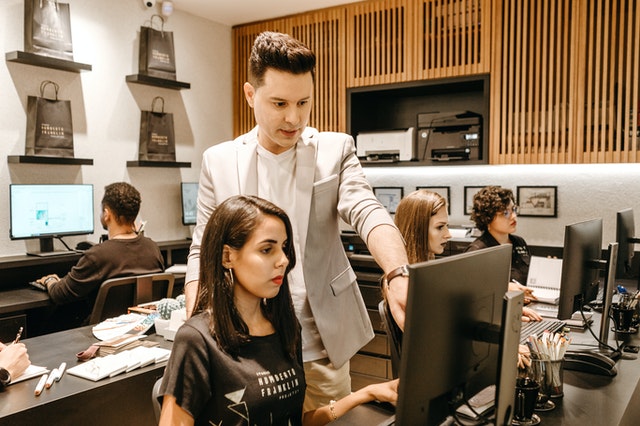People, responsibilities, and answers
The business environment responded quickly and responsibly to the pandemic. Managers mobilized resources, rethought actions, tactics but also ways of working. They aligned the business response with government support measures and helped stop the spread of the virus.
But managers need to look at what’s next and how they can begin to adapt their companies to the post-pandemic world. Specifically, how to succeed in building resilience in operations, decisions, business model, and ways of working, so that the companies they lead can withstand future disruptions.
There are many areas to adapt, such as the supply chain, financial and investment strategies, IT and digitalization, risk management, tax, and legal issues, but the most important of these concerns people. The way the leaders address the next two key areas of business will depend on the reformulation of the future and the resilience of companies next year.
Employees health and wellbeing
A physical return to work is now on the decision-making agenda of many companies, especially in industries where the physical presence of the workforce has not been essential for achieving quantitative and qualitative business indicators (eg professional services). Given the vaccination of the population, it is important to ensure a safe transition to return to work in these areas.
That is why appropriate protocols and monitoring systems are needed for the health safety of employees. The imperative of employees’ health and well-being requires improved health and safety measures, planning, and changes to the structure of the workspace to facilitate proper cleaning and sanitation of facilities.
To make decisions that protect the health and safety of the workforce, managers must first determine where and how the measures will work.
- How do we organize the program to alternate office work with working from home?
- How will the new ways of working remotely be adopted so that they are sustainable?
- Do teams have all the skills needed to perform in the new context?
- Is there the right technology in the company to support the workforce?
Employees may be concerned about reopening jobs, even in hybrid systems such as 3-2-2-, and managers need to listen carefully to what they say and feel. Managers may need the training to prepare such scenarios to help guide and support teams, and genuine communication in organizations is essential. New ways of working physically or remotely will be needed to ensure safety, productivity, and workforce involvement.
Consumers and brand
The pandemic is forcing a reassessment of values, habits, and consumption patterns, and many of them will change. Companies will have to reshape their future around very different digital behaviors.
- In business development, segmentation remains an appropriate approach to ensure growth and potential leads.
- A rapid transition is needed to stimulate agile marketing and communication approaches.
- It is useful to change the focus to new sales channels, mainly digital, and to add value through innovation to stimulate new methods of product promotion.
The crisis continues to be a test for commercial and corporate brands. Organizations can build trust by meeting demand and creating innovative offerings. But building sustainable values is also essential, whether it’s building confidence in capital markets, positive social and environmental impact, or creating a culture of continuous development and learning.
Companies responded quickly and efficiently to the pandemic. Now they need to redesign their future, investing decisively in people and converting their potential into value.

Alina Făniță este Senior Partner la PKF Finconta. A lucrat cu companii multinaționale sau firme antreprenoriale din domenii diverse de activitate, pentru a le oferi servicii de audit financiar, due diligence, restructurări de grupuri, audit intern și alte servicii conexe activității de control intern. Este membră a celor mai prestigioase asociații profesionale din domeniu: ACCA (Association of Chartered Certified Accountants), CECCAR (Corpul Experților Contabili și Contabililior Autorizați din România), CAFR (Camera Auditorilor Financiari) și IIA (Institute of Internal Auditors). A absolvit EMBA Asebuss la Kennesaw State University, a fost trainer pentru cursuri IFRS și este invitată ca expert la numeroase conferințe de business. alina.fanita@pkffinconta.ro













